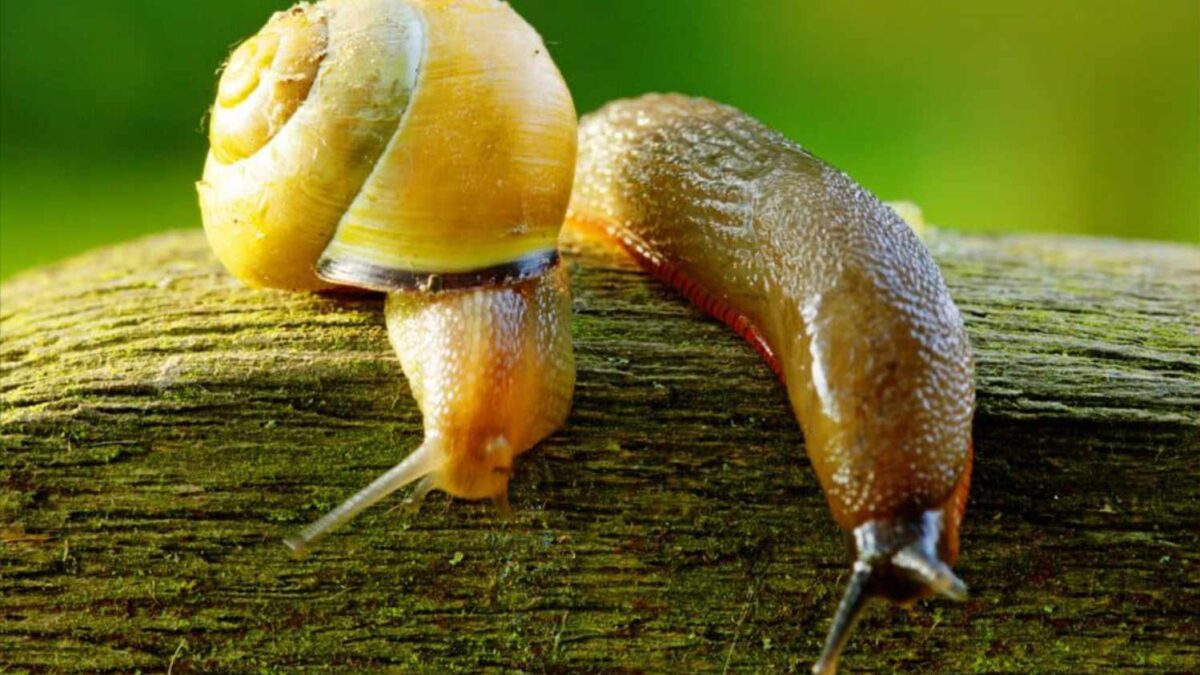Slugs and Snail infestation is one of the most common problems gardeners face. Even the more experienced gardeners are not immune to the destruction these creatures can cause.
Even so, they are a few things you can do to help get them under control.
Some of these tips may not work for you depending on the severity of the infestation. Nonetheless, they are certainly worth trying, if not all of them.
Traps
A beer trap is very effective when dealing with both slugs and snails, you can purchase beer traps from most garden centers. Alternatively, you can make your own by cutting about 3-4 inches off the base of a plastic drinks bottle.
Fill the trap with some cheap or leftover beer, then install it in a hole with the top at the soil level. You can also use out-of-date fruit juice, or even milk just about on the turn.
Trap with fruit skin, after eating your half orange or grapefruit, cut out a hole large enough for the slug to fit. Place the skin upside down on the soil. Alternatively, you can use a melon. Cut it in half and remove the center so that the rind resembles a bowl.
Again, Place it in a hole, this time with the bottom section facing downwards. Slugs love the sugary texture and will gather inside and remain there until you can collect them up.
Barriers
- You can create barriers on your garden borders or around plants using different materials such as crushed eggshells, sand, bran, grit, soot, or wood ash. Slugs and snails are reluctant to cross these materials because of the texture and lack of moisture. Therefore they will wander off elsewhere to look for their next meal. This method will be more effective against snails since slugs live in the ground and can avoid barriers. Make sure you put plenty down without any gaps.
- Scattering oat bran around your plants is a good method for dealing with slugs. They love it, if they eat enough, they swell up and die! You can then gather up the slugs or leave them for birds to eat.
- Smearing Vaseline or Petroleum jelly around the rims of pots has a similar deterrent effect. Because of the slippery texture, these substances make it difficult for slugs to cross. Combing any of the two with salt can further enhance the effects since salt dehydrates slugs.
- Copper is last the method on the list, this supposedly gives the snail a small electric shock as it tries to cross. You can purchase copper tape with an adhesive backing, which you can then stick around the pot sides.
Gather by hand
If you are not too grossed out by slippery creatures, gathering them by hand is a simple yet effective option. Late evening when they start to become active is the best time to collect all the slugs and snails you can find.
Or, if you know where they hide out, you can gather them up during the day.
Try looking under logs or bricks, shrubs, or any dark, damp corner.
Predators
- For biological control, you can use nematodes. They are microscopic parasites that kill the slugs above and below ground.
- Nematodes can be obtained from most organic garden suppliers. Simply mix the powder with water and spray on onto the soil using a watering can. This can be effective for around six weeks.
- If you have the space and extra time, adopt some chickens or ducks. They just love munching on slugs, as a bonus you can have some free eggs and use the shells.
- Encourage the natural predators of slugs and snails to come and visit. The best way to do this is to make your garden wildlife friendly. Put up bird feeders; dig a pond to encourage frogs and toads, and leave out food for squirrels.
Disposal
- Drowning them in a bucket of heavily salted water is a permanent way to ensure they don’t come back. Plain water will not do the trick, they will simply swim to the surface and crawl out!
- The compost is another good place to put the slugs and snails you have collected from your traps. You can place all the materials including the beer, but scoop the dead slugs and snails out of the salty water first. If you put live slugs or snails into your compost heap, they will probably stay there, as there is plenty of matter for them to feast on.
While most of these methods will not provide an instant fix, they will give you a healthier garden(with fewer pests) in the long run so, happy slug hunting!

